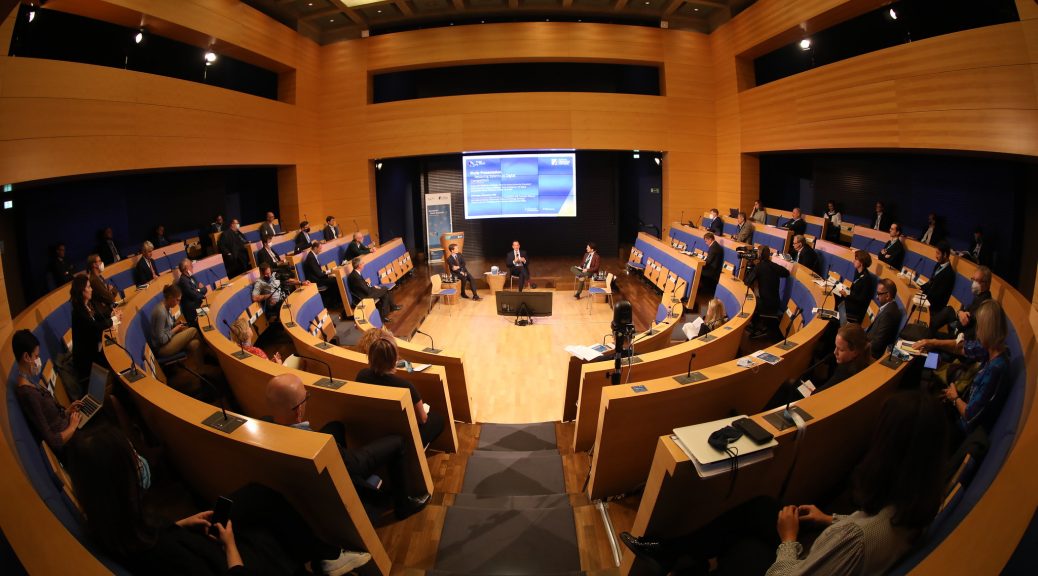
Conference Debriefing (21/22): Sustainability, Platforms
Once a year the Bundeskartellamt calls a meeting of professors and judges to discuss a current topic. This year’s topic was “sustainability and competition”. The day before, platform regulation had been discussed at the “European Data Summit” in Berlin. Rupprecht Podszun was present at both events – here is his double conference debriefing!
Name of Event 1: Meeting of the Working Group on Competition Law (vulgo “Professors’ Conference”)
Topic: “Open markets and sustainable business – public interest objectives as a challenge for antitrust law practice”.
Place & Time: 1 October 2020, Zoom
Host: Bundeskartellamt – with Vice-President Konrad Ost and Silke Hossenfelder, Head of the Policy Department
Audience: Allegedly more professors and judges than ever before were present. Konrad Ost, who was able to view the list of participants, welcomed in particular EU judge Johannes Laitenberger, the chairman of the Cartel Senate at the Federal Supreme Court in Germany, Peter Meier-Beck, Jürgen Kühling as the new chairman of the Monopolies Commission and Andreas Heinemann as head of the Swiss Competition Commission.
Event name 2: European Data Summit 2020
Theme: “The Winner Takes It All
Place & Time: 30 September 2020, Berlin and online
Host: Konrad-Adenauer-Stiftung, a political think tank – Pencho Kuzev is the mastermind behind this three-day event, which focused primarily on antitrust law on the first day
Audience: In the auditorium of the Adenauer Foundation, panelists, thinkers from think tanks, lobbyists and policy-makers sat with due distance and mostly wearing masks, amongst them Thorsten Käseberg from the Federal Ministry of Economics, EU parliamentarian Andreas Schwab and the staff of relevant members of the Bundestag, Konstantin Kutscher and Jan-Hendrik Kuntze.
It seems that the conference circuit has got going again…
At last! But digital. Hybrid conferences are still only half the fun. At the Adenauer Foundation, where about 50 people were allowed to attend, there was not even alcohol served at the final reception! And even if you wanted to help yourself to finger food, you were told in the friendliest Berlin dialect that you were not allowed to help yourself – and you know that free-riding on the food is the main motivation for poor academics to attend conferences.
I thought at the European Data Summit you also presented a study…

Oh, thank you for this excellent question! I gladly accept the invitation to shameless self-preferencing. By the way: The President of the Bundeskartellamt, Andreas Mundt (who attended the European Data Summit, but who traditionally leaves the professors’ meeting of his own authority to his deputy) pointed out that the definition of self-preferencing is extremely difficult. In the Commission’s Google Shopping case, there was a discussion about colour shading for ad displays. (I assume Mundt referred to para 547 of the decision). Mundt wanted this to be understood as a warning that with famous Section 19a of the German draft Act Against Restraints of Competition (GWB-E) and the planned Digital Services Act, which provides ex ante rules for platforms, it would remain difficult to identify crystal-clear infringements. I would therefore not be too sure whether it is self-preferencing if I now report on the study that the awesome Philip Marsden (known from Furman Report, hipster rap and the College of Europe) and I wrote for the Konrad Adenauer Foundation and presented in Berlin. Title: “Restoring Balance to Digital Competition – Sensible Rules, Effective Enforcement”.
Aren’t there enough studies on digital competition yet?
Yes, but two things are different: firstly, the European Commission has moved forward with its proposals for a “New Competition Tool” and the “Digital Services Act”. The first drafts have already been leaked (which, by the way, Agustin Reyna is not too happy with from a governance perspective).
Secondly, Philip and I have gone where it hurts: into enforcement. Three things became clear to me when I worked with Philip (who was about as good fun to work with as I had imagined it would be).
Tell me.
Firstly, if we want to seriously limit the power of digital platforms, and this is the bottom line of all previous reports, we need a breakthrough, we need to come up with a bolder move. A little tightening up here and some tiny adjustment there will not be enough.
Secondly, things should now move quickly – any further consolidation of power in the platform economy will be very difficult to reverse (if ever).
Thirdly, this breakthrough depends on institutional design and law enforcement. So, in addition to drafting principles and some concrete rules, we looked in particular at what new tools might look like and how they should be enforced.
There is a need for ex ante rules, UK-style market investigations and a clear mechanism for DG COMP and DG CNCT to work together in Brussels and to involve market participants and national authorities. Everything else can be read here, the download is free, non-binding, no artificial additives. Reading covers your natural daily dose of techlash.
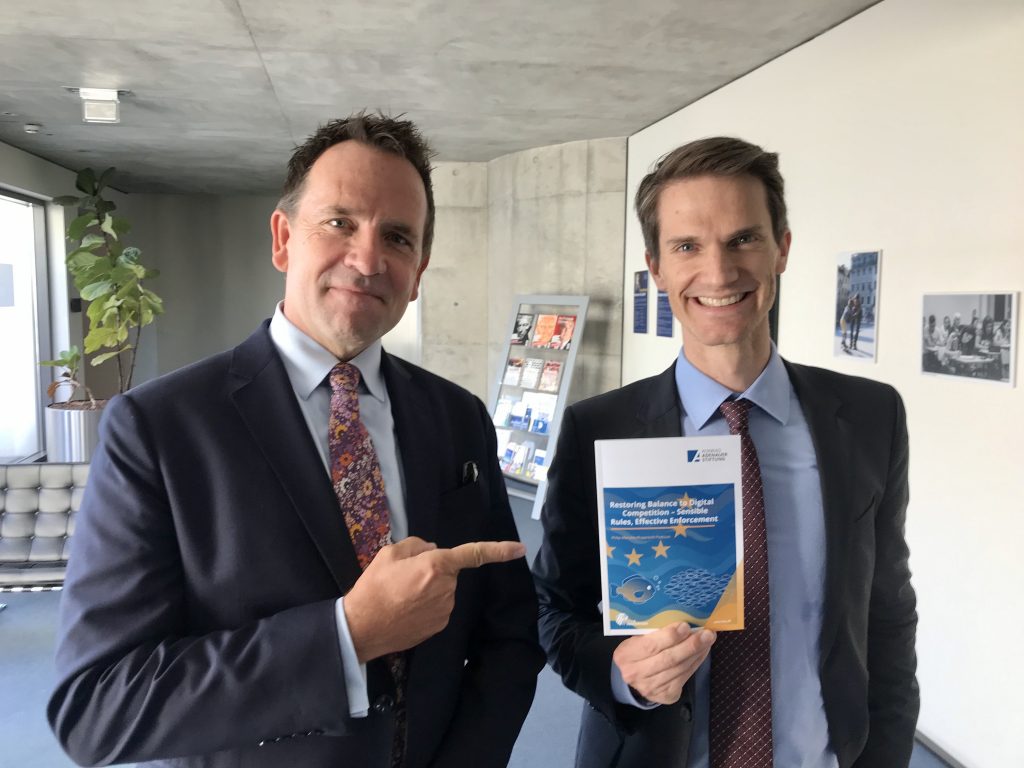
Enough now with self-promotion. What else went on at the European Data Summit?
Externalities come into focus. Andreas Mundt amazed me with a passionate plea that, in his view, the Facebook business model would not work at all if the costs were calculated honestly. If thousands of people in the Philippines have to watch, monitor and delete the most horrible content (violence, porn etc.) every day, for little money and without care, which traumatises these people in the long term, then that is the price of Facebook’s business – only that Mark Zuckerberg has to pay far too little for it in this world. It sounded a bit like a foretaste of the topic of “sustainability”, but that was on the agenda only the next day.
A plea for a new economy?
Sort of. When Wolfgang Kerber, the astute economist from Marburg, asked whether everything that is supposed to come out of the Digital Services Act is economically underpinned, Mundt replied – not without a certain amount of satisfaction – that the pendulum has now swung back a little: from an economic approach to a more normative one. However, the question of legitimising and limiting new rules for platforms remains virulent. MLex reporter Lewis Crofts, who joined in from time to time as a co-moderator from his home, asked quite relentlessly: “What is the real harm?” He also asked other unpleasant questions, e.g. how to finally reduce the length of proceedings of competition authorities and courts.
So what did the ladies from the competition authorities answer to this?
The representatives of the authorities – Silke Hossenfelder from Germany (sitting in front of a pretty Bundeskartellamt flag the next day, but speaking from her home in Berlin), Natalie Harsdorf from the Austrian NCA and Marieke Scholz from the Commission – naturally kept their heads down wisely. The power game is just beginning. If Vice-President Vestager is able to push through a new legal framework, it will certainly also be a question of the division of competences between different Directorates-General, national and European levels and all sorts of bodies. It is hard to imagine that this will remain harmonious. For example, I do not yet see the Bundeskartellamt putting itself in line to let the Commission take centre stage after the Germans’ major proceedings against Facebook and Amazon. Ex ante regulation, on the other hand, is actually an issue that the competition authorities have so far avoided. In the audience someone even suggested that this may be better placed with telco regulators.
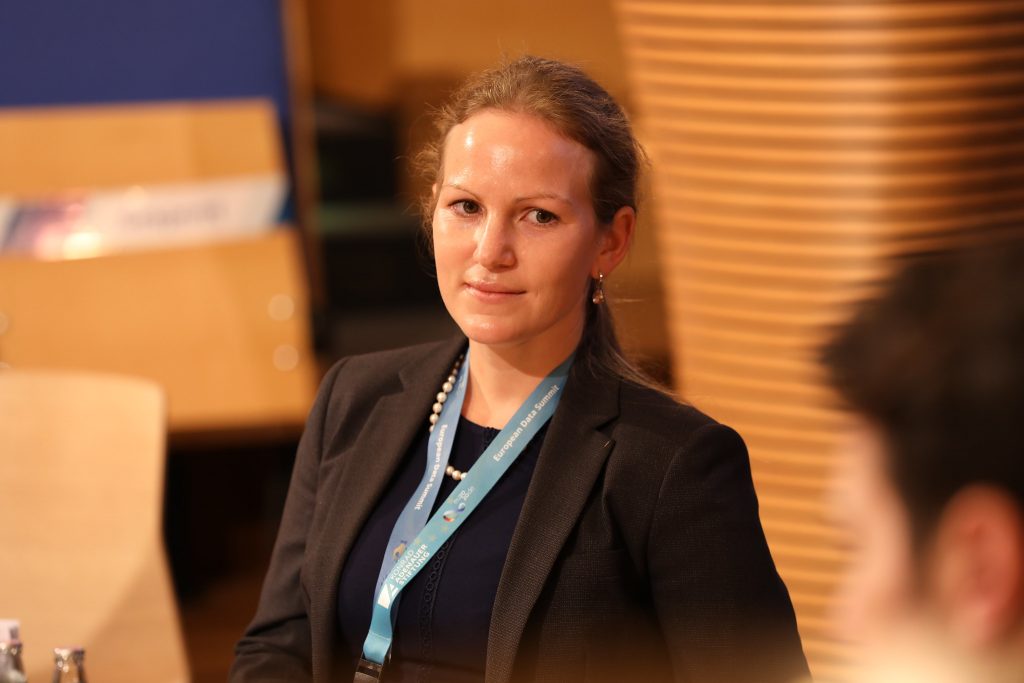
Natalie Harsdorf (A) 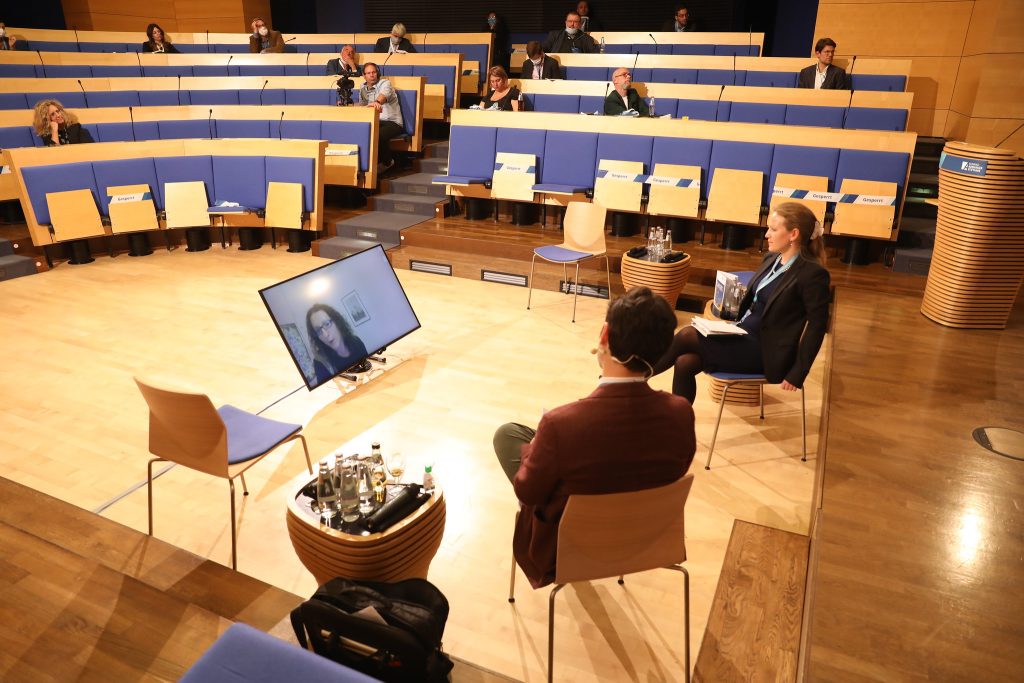
Marieke Scholz (EU) 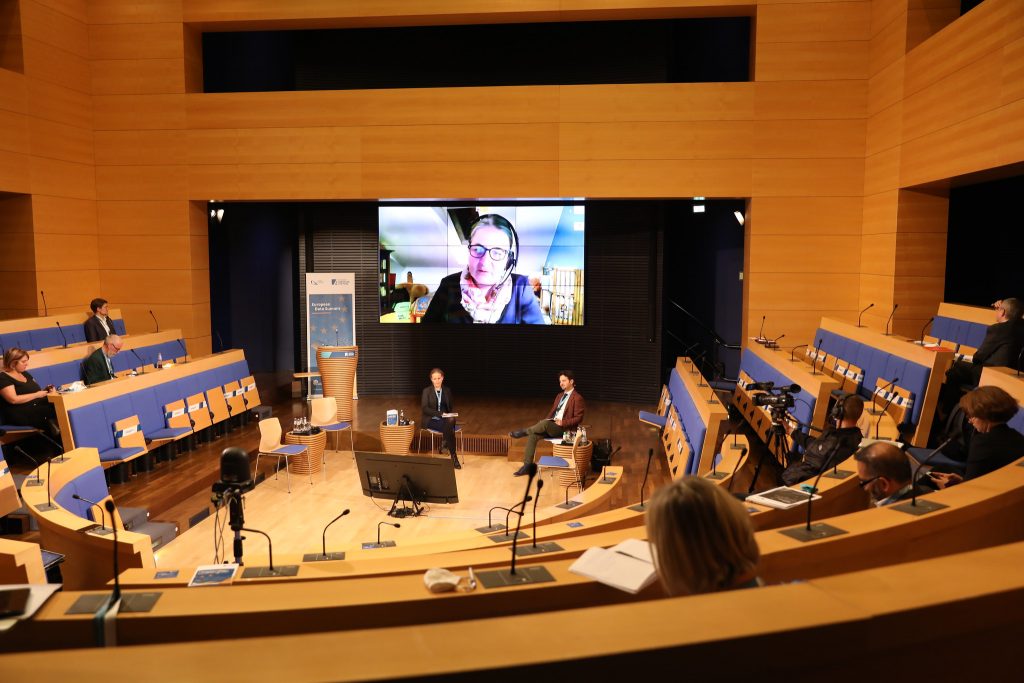
Silke Hossenfelder (D)
Next. I don’t want to give anyone a bad idea!
The company representatives were purely lovely: Oliver Bethell of Google, for example, welcomed the Commission’s initiatives. Europe needs a “clearer rulebook” and if a secure legal framework for digital innovation can be created, the EU could be the No. 1 in the future when it comes to launching new Google blessings products or services. I don’t know if everyone present took this as a promise, but Bethell was surprisingly open-minded for new rules. Could be though, that he simply continues to handle the Commission with kid gloves as long as he has to fight through the Google/Fitbitbit merger. After all, 17 very renowned competition economists have just issued a remarkable statement against it, essentially calling for a prohibition of the deal.
Merger control still exists, right.
Yes, but the next big thing is the Market Investigation, a kind of sector inquiry in markets not yet tipped but in danger of it. That process starts out friendly but can end up in tough measures – for companies, but also for governments. Ben Schroeter of Booking.com was asked by moderator and organiser Pencho Kuzev who would be the first target of an EU Market Investigation – the GAFAs are out, Pencho said, since their markets have already tipped.
Ha-ha-ha, what a mean question.
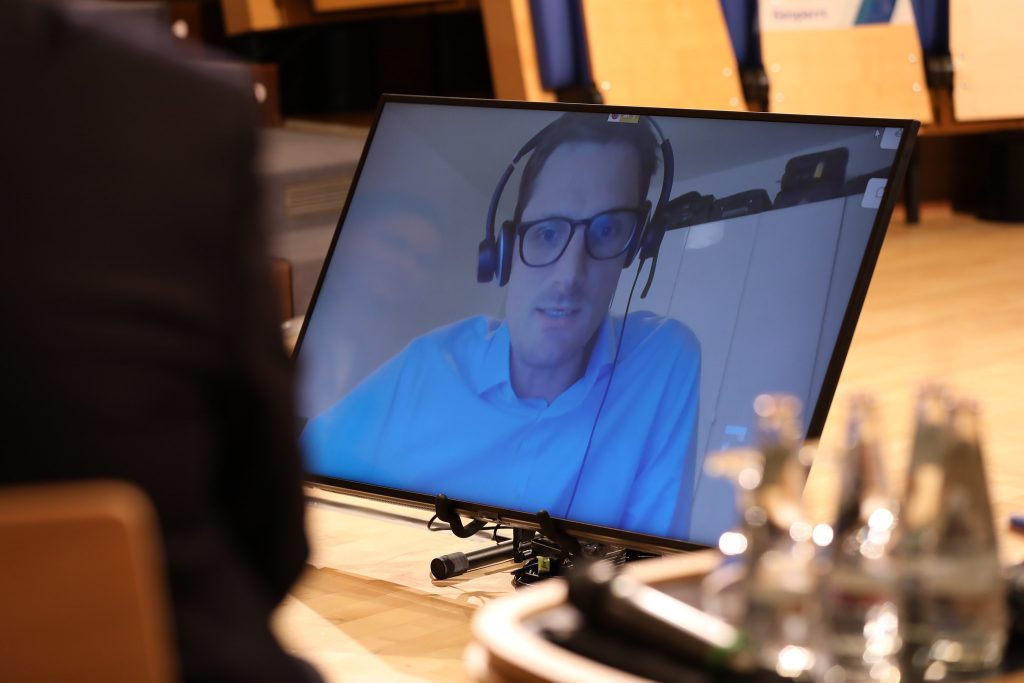
Lewis Crofts. 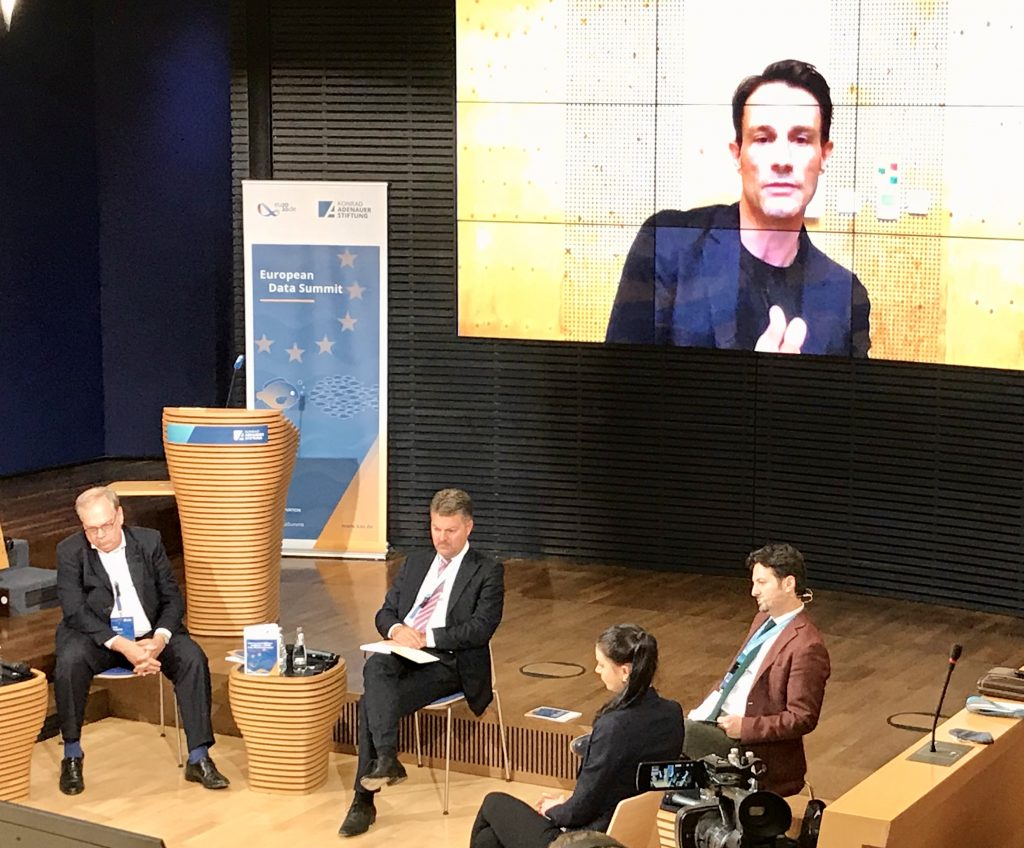
Oliver Bethell. 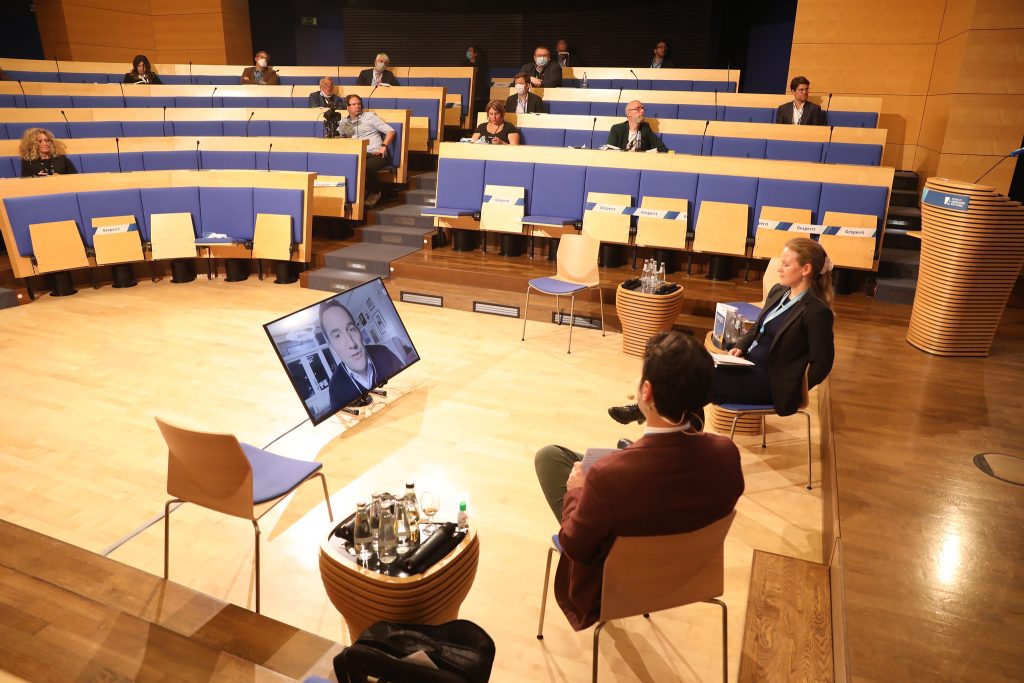
Ben Schroeter. 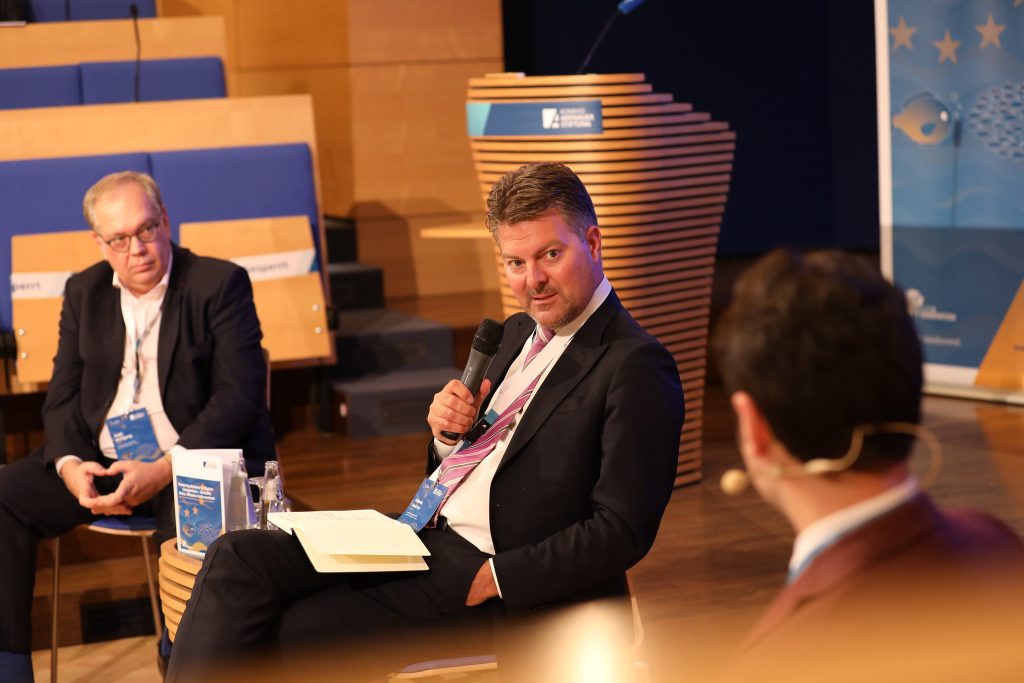
Wolfgang Kopf and Andreas Schwab. 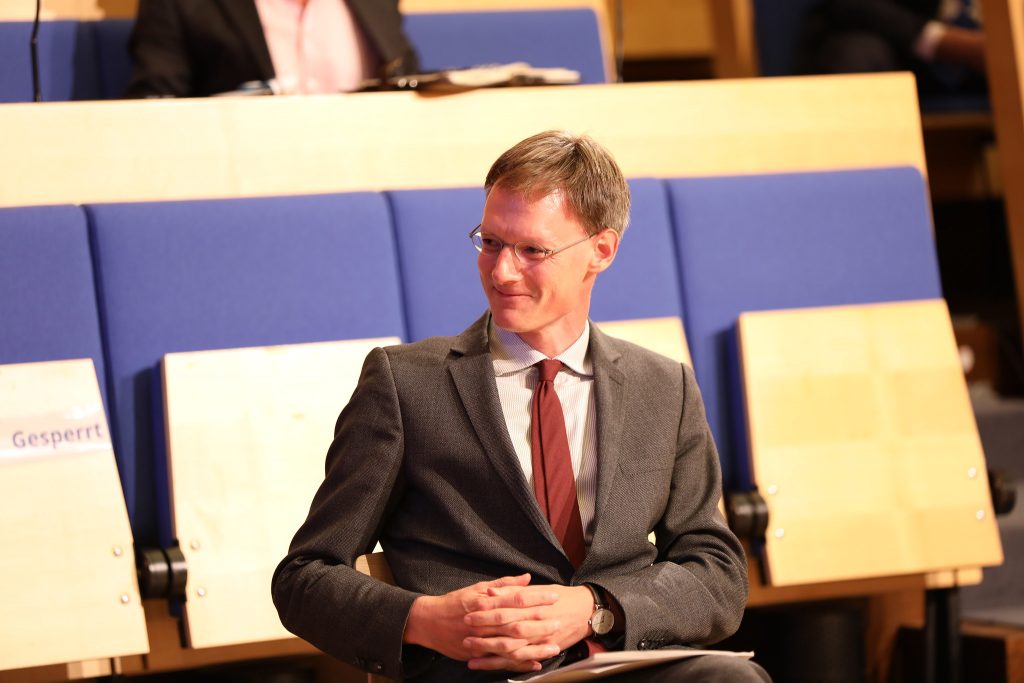
Thorsten Käseberg. 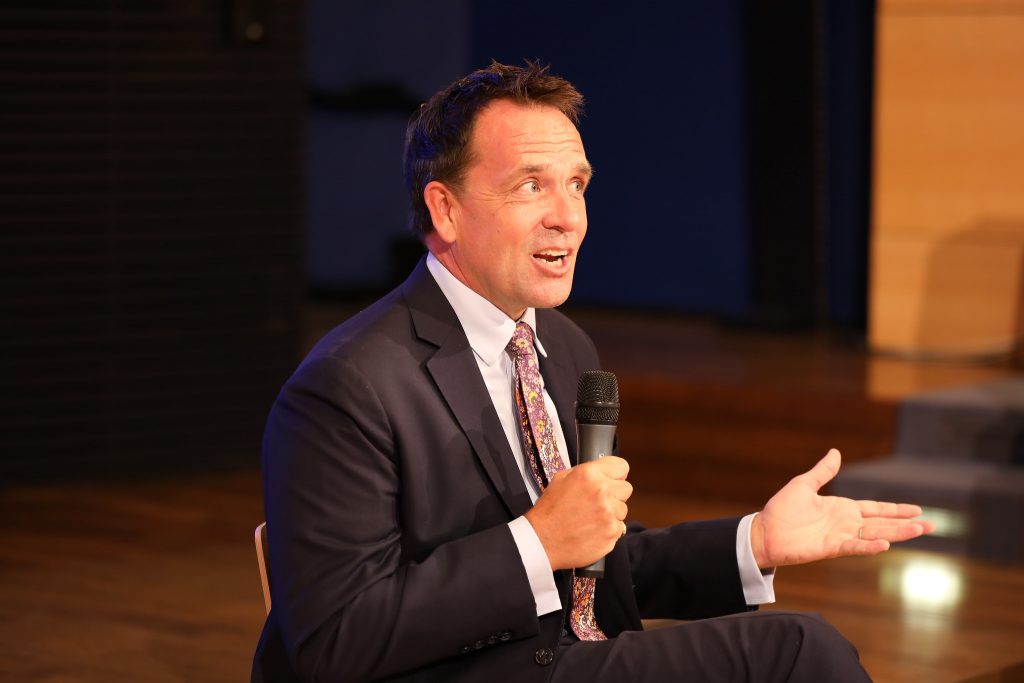
Philip Marsden 
Wolfgang Kerber 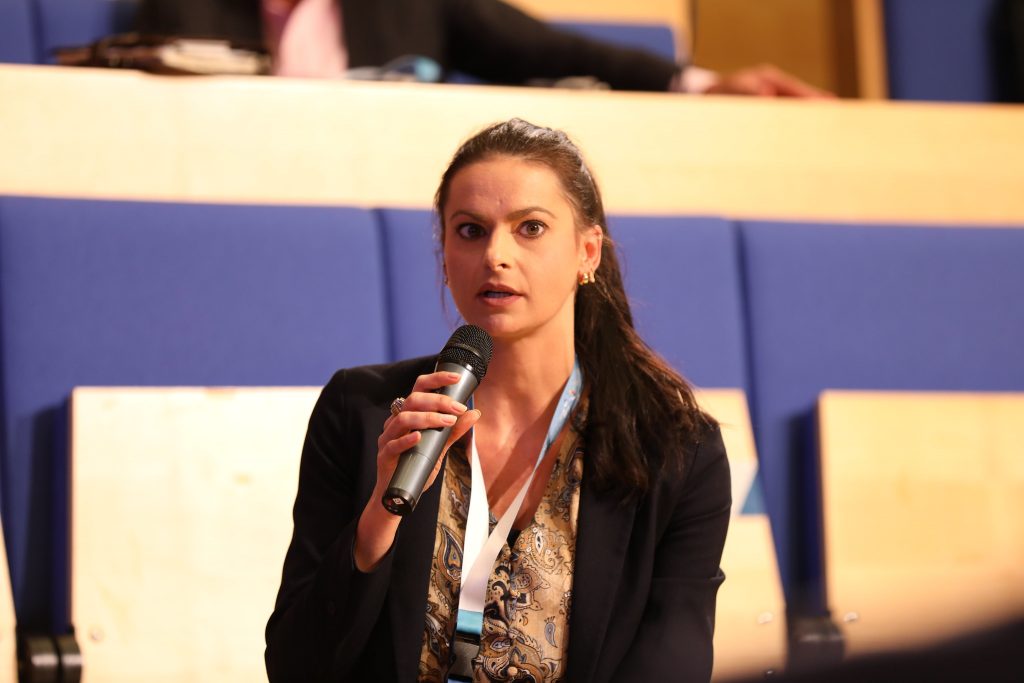
Rebekka Weiß
Schroeter remained cool: Everyone would know that there were problems in the platform economy that needed to be tackled; he welcomes the reform initiatives; Booking has nothing to fear. I hope he has seen the Bundeskartellamt’s investigation results from the best price clause proceedings, which the Office published in a rather surprising step during court proceedings. In any case, the Market Investigations procedure does not seem to be rejected outright, as it is by nature not as “adversarial” as German lawyers often imagine official proceedings to be. Companies obviously like that more cosy approach. However, Marsden and I also plead for Market Investigations to be…
All right, all right, I’ll download your study right away!
Okay. Wolfgang Kopf from Deutsche Telekom complained about the dependence on the App Store operators and made this vividly clear using the example of the German Corona Warning App. As a representative of the IT industry association Bitkom, Rebekka Weiß is in the nice position of having to bring the views of startups, digital giants, German traditional businesses and others to a common denominator. Her message: “Overregulation stifles innovation.
Word. There also was a late-night-talk on the interface of privacy and competition.
Late, but exciting. Which was not surprising considering the discussants: Professor-turned-top enforcer Ioannis Lianos from the Greek antitrust authority, experts Simonetta Vezzoso (Uni Trento), Wolfgang Kerber (Uni Marburg), lawyer Sebastian Louven and Aline Blankertz (of think tank Neue Verantwortung). It took around 5 seconds before they were discussing the Facebook decision of the Federal Court of Justice, which Vezzoso celebrated: The case was now where it belonged – on the subject of “consumer choice”: “This is about our decision what level of creepiness we are ready to accept.” Wolfgang Kerber, similarly excited by the case, still grapples with the remedy: “What if everyone agrees?” he asked. Then the data ecosystem break up promoted by Lianos will not happen. From the audience, Thorsten Dittmar of Poly Poly argued that Facebook’s business model would collapse if the Cartel Office were to prevail. The programming was such that a split into on-Facebook data and off-Facebook data was no longer possible. This would at least confirm those who consider the case to be a hit at the heart of Facebook’s business model.
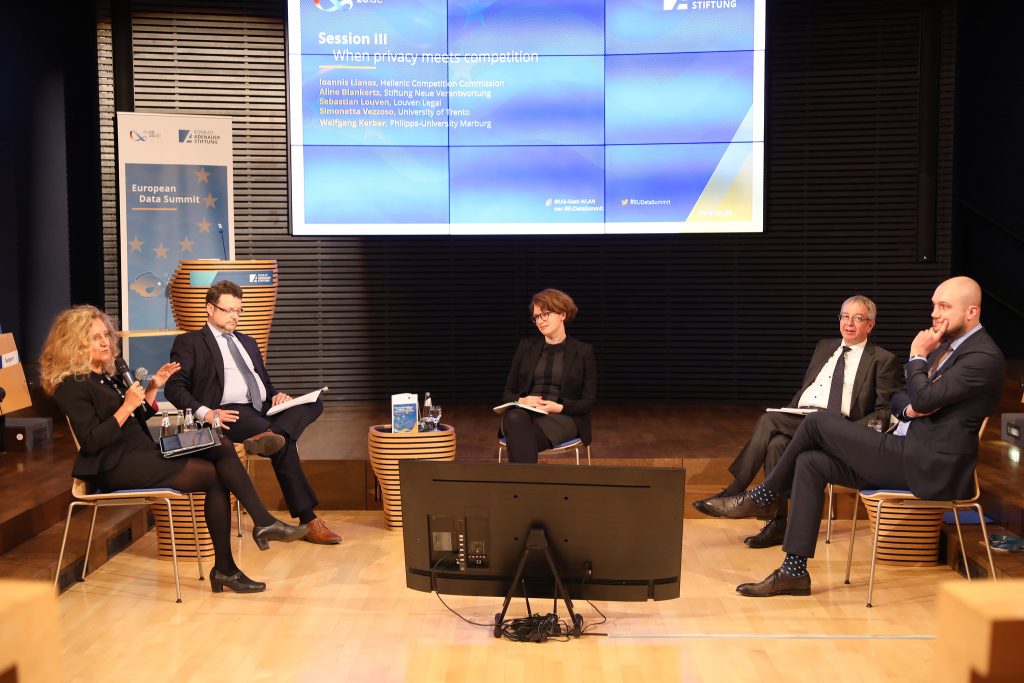
Speaking of hearts: Sebastian Louven understood a question by Pencho Kuzev, which was actually harmless, as if Pencho wanted to know what his feelings were towards the Facebook decision. Louven was perplexed for a second, then he started: “Three points…”.
This is exactly how I imagine lawyers to be: Emotions wrapped up in three bullet points…
After all, it is recognised that we do have feelings at all. And now we even care about animal welfare, fair trade and child labour in Asia!
Antitrust lawyers for future?
Almost. In this logic Martijn Snoep, head of the Dutch Autoriteit Consument & Markt (ACM), would be a kind of Greta of antitrust law. Konrad Ost presented him – one day after the discussion on platforms – at the Bundeskartellamt’s “Working Group on Competition Law”, an assembly of law professors, as the “star” of the scene. Snoep’s authority has published draft guidelines on how the ACM intends to deal with agreements in the future that promote sustainability and possibly restrict competition. The draft version of the guidelines encourages “Codes of Conduct”, declares some things not even covered by the prohibition, opens up further-reaching exemption possibilities, promises open doors and a waiver of fines. Heike Schweitzer remarked that the need for such guidance has of course only arisen since the system change to self-assessment was introduced by Regulation 1/2003.
Has the ACM rejected so many sustainability initiatives in the past?
Not many, but two. The SER Energy Accord and Chicken of Tomorrow cases seem to have traumatised the authority in a sustainable way. In 2015 a poultry initiative of the Dutch food industry was stopped as anti-competitive. In 2013 the ACM considered the agreement to shut down five coal-fired power plants to be incompatible with antitrust law. Imagine what would have happened at the junction of Muzenstraat and Zwarteweg in The Hague if climate change schoolkids had already existed back then! Now Snoep and his people stand for a friendly turn towards sustainability initiatives.
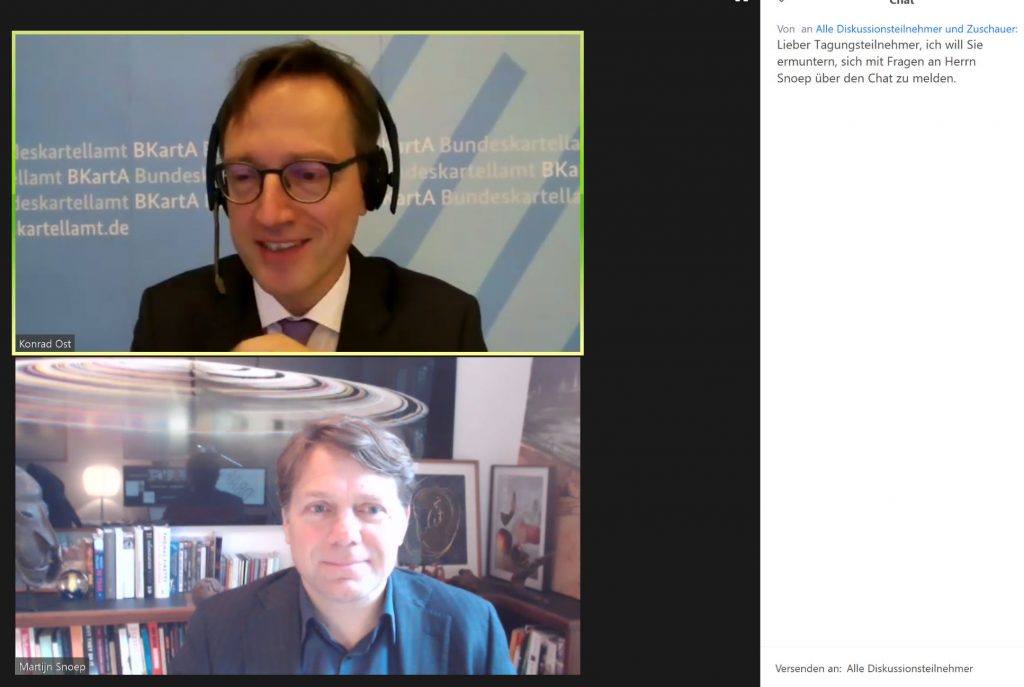
To do justice to the others: If the Dutch competition authority is more generous in the future when it comes to private agreements to promote environmental protection, that is appealing, but it is also manageable in effect. If the German Federal Cartel Office or the European Commission accept stronger restrictions for cartel law, then this has completely different dimensions.
What’s all this caution about? Come on, save the planet!
But the Bundeskartellamt does so, too. The Bonn office has let both the animal welfare initiative and the Fairtrade seal pass. This is wonderfully laid out in the once again very good background paper for the professors’ conference. However, when during the discussion at this (virtual) meeting a kind of cuddly generosity towards Fairtrade initiatives was about to emerge (wanting to help farmers in Africa or so) Felix Engelsing, head of the competent Decision Division at the Bundeskartellamt, intervened: Fairtrade effectively implies the agreement of minimum prices. Every child knows that price agreements are exactly the very first thing that are not to be done. It is therefore remarkable that the German Federal Cartel Office nevertheless decided not to make the agreements on the Fairtrade seal the subject of proceedings.
So we have to choose between do-gooding and free competition?
There is still an alternative to such “private ordering”, i.e. to solving ecological problems through business agreements – state measures. If the legislators decide to ban industrial chicken farming, this is a legal requirement that must be complied with. Then there is no need for agreements between companies. But even that is not easy: Engelsing, the realist, has regularly been served the hint in his proceedings that state bans in Germany would ultimately only lead to exporting the problem. Then your chicken wings simply come from factories outside Germany.
What did the professors say about this?
In the main part, Achim Wambach (Mannheim), Thomas Ackermann (Munich) and Heike Schweitzer (Berlin) sat on the podium in front of their webcams and essentially discussed how such sustainability agreements can be integrated without doing too much harm to doctrinal concepts and precedent. This was really exciting from a technical point of view. Ackermann tends rather towards an exception to Art. 101 (1) TFEU, similar to the Wouters judgement. By the way, he praised Ludger Breuer‘s dissertation on the subject of public interest objectives in cartel law.
Heike Schweitzer pleads for what she called a “rule-based approach”: It is better to examine closely the exemption criteria in Art. 101 (3) TFEU, leave the major decisions to politicians, keep political discretionary considerations out of antitrust law. The debate thus turned into one about the powers and role of the cartel authorities. Ackermann, more lenient than Schweitzer, recommended bolder moves: “Don’t be so timid! ” (This is how Konrad Ost summed it up.) Schweitzer, on the other hand, is more reserved and is probably worried about the core of antitrust law. Florian Bien (Würzburg) pleaded for the office’s independence to be respected and for it not to be overburdened with political decisions. Btw: there was a consensus that many agreements, for example when they expand freedom of choice for consumers, do not pose any competition problems at all.
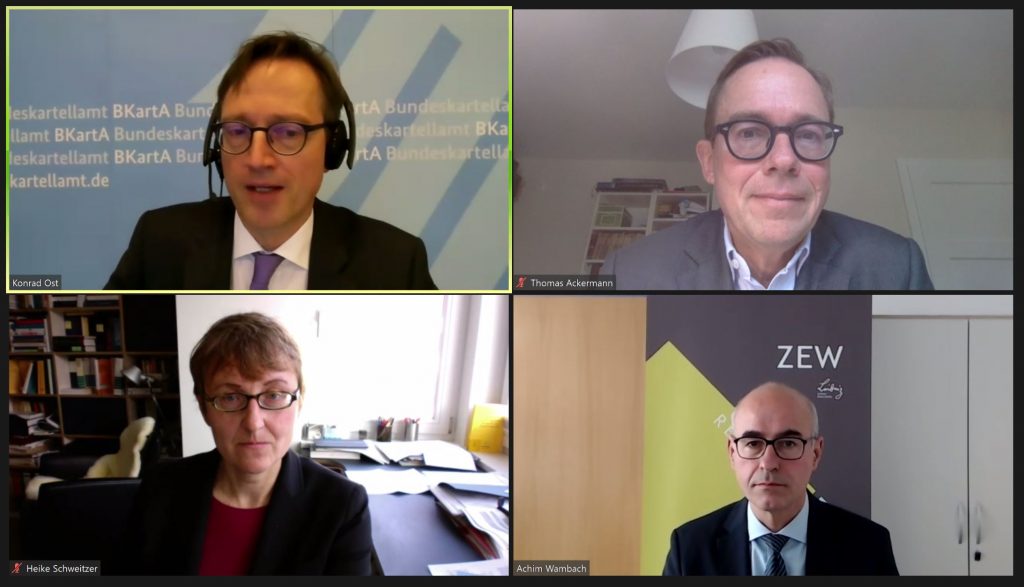
And the economist in the group, Achim Wambach?
As the former head of the Monopolies Commission the subject of “public interest objectives” triggers his memories of ministerial approval of banned mergers on exactly this ground. No too good memories, though. Oliver Budzinski (Ilmenau) supported him, stating that according to empirical research by him and Annika Stöhr, the public interest objectives of the ministerial approval procedures of the past were hardly ever achieved. Apart from this, Wambach was the straightforward economist we know him to be.
What do you mean?
Let’s put it this way: I am glad that the Bundeskartellamt’s “Professors’ Conference” has always been a closed shop event, this time not with a personal invitation but with a personalised access code. If Fridays-for-futere-activists were to hear us discuss the most burning issue on the planet, they would probably collectively label us as “old white men”. Which we are not. We are simply sticking to the “rule of law” when examining sustainability initiatives. Sorry, but the revolution may take a tiny bit longer. Economists say things that some activists would probably confirm in their view that capitalism has a “cold heart”.
OK, Boomer. That bad?
“If we stop child labour for Western companies in factories in Asia, the children will not go to school but work elsewhere.” Sentences like that could certainly be framed in a more soft-spoken way…
But Wambach is too much of an academic for offering easy-to-digest messages: just because a few companies come to an agreement, the world does not necessarily become a better place – what conclusions to draw from this, revolution or frustration, Wambach has not revealed. He did, however, very aptly explain that not every sustainability problem can be solved by coordinating the market players. The attempts to calculate sustainability are also quite interesting. One example: How do rents in an area rise when a greeny-sceeny park is built?
I am not sure whether this approach will convince Greta.
Read it as an attempt to get some ground under your feet when you start swimming with the figures and models-approach of past years. If the countless expert opinions on antitrust damages proceedings leave one or two mainstream competition economists some time, it could be calculated more precisely how climate damage can be priced into competition economic models or how the externalised costs of the platform industry should be measured. However, legal scholars like me should not look down to our fellow economists too confidently. The connection to economists is one of the strengths of our discipline, and we are not really radical either.
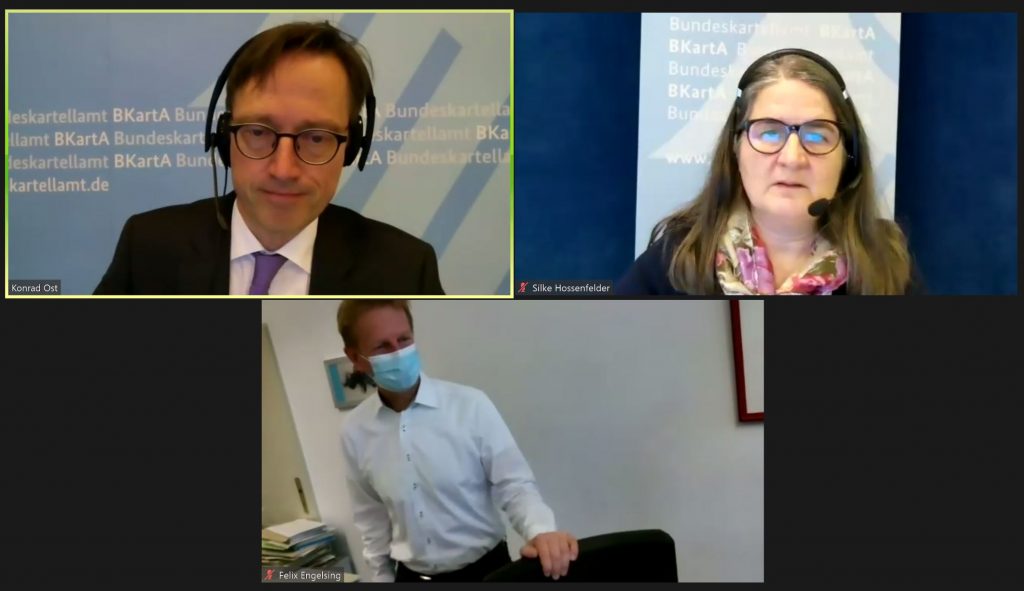
Has anyone ever testified to the contrary?
Anyway, discussions about public welfare goals in competition are not exactly brand new stuff. The next steps will be really exciting: can a merger of energy companies be prohibited because their new strength will make efforts to protect the environment superfluous? Can climate damage caused by market power be included in a procedure under Article 102 TFEU?
Beg your pardon?
Exactly. If we accept that all sovereign measures are placed under a climate protection imperative, such issues will become virulent. The Greek antitrust authority hints at this in its paper on sustainability. And remember: Before the Facebook case, many people thought that antitrust law had nothing to do with data protection…
Do say: “I don’t know what state the audience is in right now. (Konrad Ost)
Don’t say: “Do you hear me? Hello? ” (Someone, always)
Next stops:
On 8.10.2020 the newly founded D-A-CH Cartel Law Forum will discuss relative market power.
On the same day, Daniel Zimmer, Arno Rasek and Till Steinvorth will speak in the WuW-Dialogue about the ECJ judgement CK Telecoms UK.
Shortly before the legislative procedure on competition law reform in Germany, the government parties CDU and CSU are gathering input again at this event on the amendment to the ARC on 13 October 2020.
See you there!
One thought on “Conference Debriefing (21/22): Sustainability, Platforms”